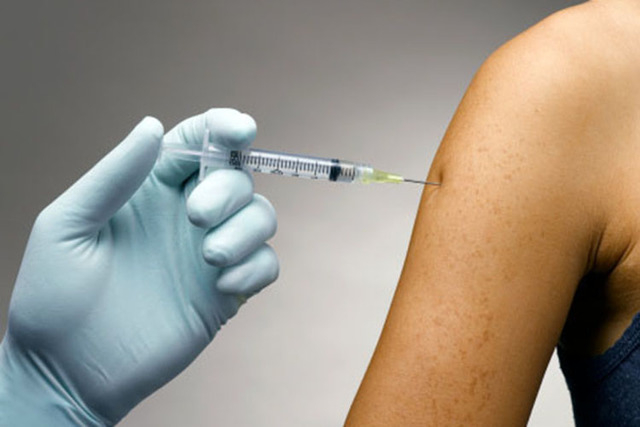Vaccines aren’t just for kids

Measles outbreaks in several states have reignited a long-simmering public debate about the safety of childhood vaccines.
But are there vaccinations that adults should be keeping up on, too? Yes, says Dr. Robb Rowley, a Las Vegas internal medicine specialist, and among them are a few that an adult probably wouldn’t immediately think of.
Usually, adults think about getting a vaccination when they need one for their job or are planning a trip to regions of the world for which a vaccination is recommended. But, Rowley says, adults should ask their doctors about keeping current with vaccinations for a few common, but potentially serious, medical conditions.
First, of course, is an annual flu shot. Even when they don’t offer as much protection from influenza as desired — that has been the case this flu season, when the strains used in preparing the vaccine haven’t meshed perfectly with the strains we’re seeing — a flu vaccination can help to make a bout of the flu less severe.
But, Rowley says, a case of the flu also can be associated with a subsequent pneumococcal infection, so your health care provider may recommend a pneumococcal vaccine, too. There are two types of pneumococcal vaccine, he adds, so discuss it with your doctor.
“(Then) there’s the pertussis vaccine, which is called Tdap,” Rowley says. It protects against tetanus, diphtheria and pertussis, or whooping cough, a contagious and serious respiratory infection.
One good reason for adults to receive a Tdap booster is that adults may experience the 100-day cough, a persistent cough that seems kind of trivial and, if you get it, very much of a nuisance, Rowley says. But pertussis is highly contagious. And an adult easily can pass it to a child or an infant with deadly results.
Transmittal of pertussis from unvaccinated adults to children and infants has resulted in the deaths of infants, Rowley says, and the adult Tdap vaccination really prevents infants and children from dying of whooping cough.
Older patients should ask their health care providers about the herpes zoster vaccine, which guards against shingles and, Rowley says, is recommended for anyone older than 60.
Younger patients, meanwhile, should ask their doctors about receiving the HPV, or human papillomavirus, vaccine — “the reason we give that is to prevent cervical cancer,” Rowley says — and meningococcal vaccine, which protects against meningitis.
As always, talk with your doctor or health care provider to determine the schedule of vaccinations that’s right for you.
Contact reporter John Przybys at jprzybys@reviewjournal.com or 702-383-0280.